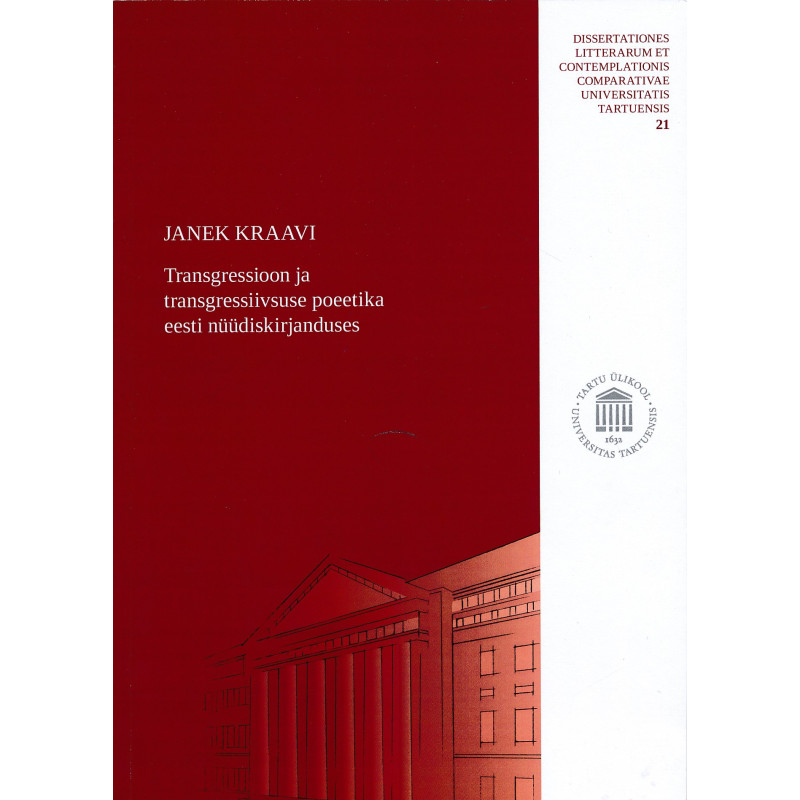



Tartu: Tartu Ülikooli Kirjastus, 2021
168, [1] p.
Dissertationes litterarum et contemplationis comparativae Universitatis Tartuensis, 1406-913X ; 21
ISBN: 9789949037933
Softcover in very good condition
Restrictions and prohibitions are global problems vexing on modern human experience. While the change of social norms was particularly felt with the turn of the twentieth century, it is equally important today in the context of political, technological, and aesthetical developments. The ambivalent relationship to restrictions and norms underlying society and art is being examined in this dissertation via concept of transgression. Transgression is a violation of social or cultural bans; it means going beyond what is deemed socially acceptable or decent. In the introduction, the author highlights the theoretical and socio-historical context of transgression (taboo, sin, social norm), examines the tensioned relationship between artistic language-use and the law, and relations of beautiful and ugly. The second part of the dissertation analyses the poetics of transgression in contemporary Estonian fiction. The problematic focus stems from the changes in Estonian literature after the Estonian Restoration of Independence, which marked the disappearance of former sexual, political, and religious taboos. Accordingly, since the 1990s, several prominent Estonian authors (Kaur Kender, Peeter Sauter, Kivisildnik) feature topics like pornography, addictive behaviour, violence and blasphemy, politically provocative behaviour, insanity, and suicide in describing the social reality in their oeuvre. Since such themes are culturally suppressed, or subject for bans and regulations, exploiting them in works of art raises more general questions regarding the morality of art and overstepping of aesthetic boundaries. The dissertation also analyses expressive means and linguistic peculiarities of contemporary transgressive fiction as well as various social meanings of violating bans and peculiarities of image creation. Given these goals, the dissertation may read as a kind of long plea to the literature and art, which dares to deal with violation of bans and norms. However, despite the necessary ambivalent and controversial reactions, the author urges the reader to give sense to these matters in a wider contextual framework and in a more kind-hearted fashion.